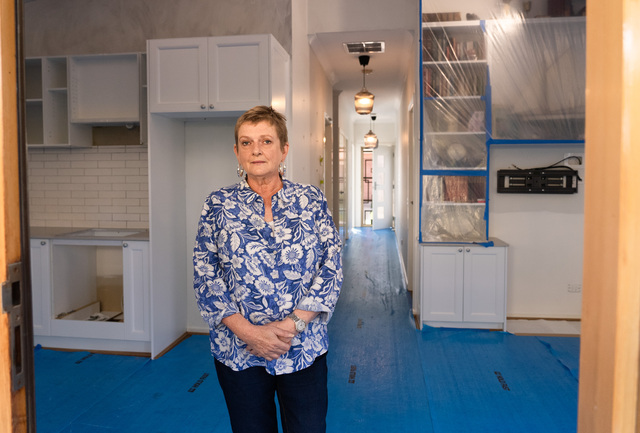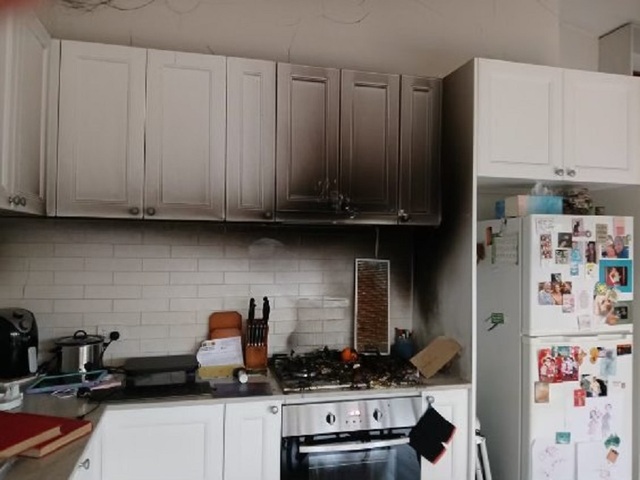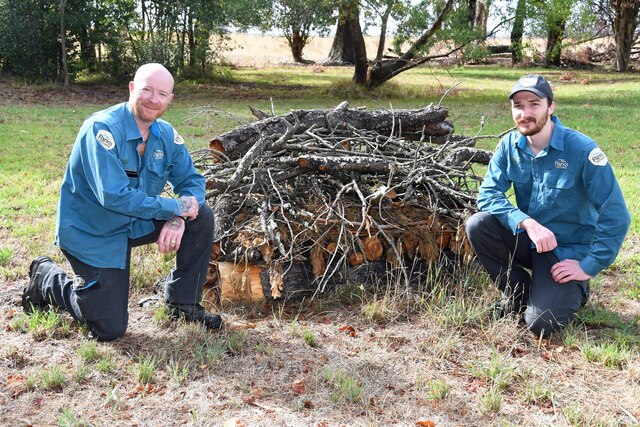A new smoke alarm battery proved a saviour for Keysborough resident Belinda Peterson.
She made a rapid getaway and called triple-000 when she was alerted to a fire in her kitchen recently.
In a freak accident, Peterson had placed a food-delivery polystyrene box on her stovetop bench.
She then went outside to water her plants, and started chatting with her neighbour before the alarms sounded.
“The stove wasn’t on when I initially placed down the box, but from that movement it made contact with the ignition button and as a result sparked a flame and ultimately the fire.”
Peterson couldn’t get to her fire blanket under the stove so grabbed doonas off the bed to try to suppress the fire.
As the flames continued, she escaped outside and called triple-0.
Fire services were able to extinguish the remaining fire and contain it to the kitchen.
However the microwave, kitchen cabinets, stovetop and plaster throughout the kitchen were damaged.
Peterson is still unable to return home but considers herself fortunate to have been assisted by a CFA and RACV smoke alarm installation program four months earlier.
“The fact that I am above 60, single and unable to reach the heights of those ceilings meant I needed help,” Peterson said.
“It was a case of calling my local fire brigade and having them come round and install them for myself and my neighbour.
“Although the units didn’t need to be changed, they did replace the back up batteries that were well and truly out of date and cleaned them all thoroughly before performing tests to ensure they were working before they left.”
Peterson was one of more than 1000 at-risk people to receive a free smoke alarm and assistance since April.
CFA recommends all home smoke-alarms are powered by a 10-year lithium battery as well as interconnected and installed in every bedroom, living area and hallway.
All smoke alarms, even hard-wired ones, should be replaced every 10 years, the CFA states.
Residents should also test smoke alarms monthly and clean or dust them yearly.


















